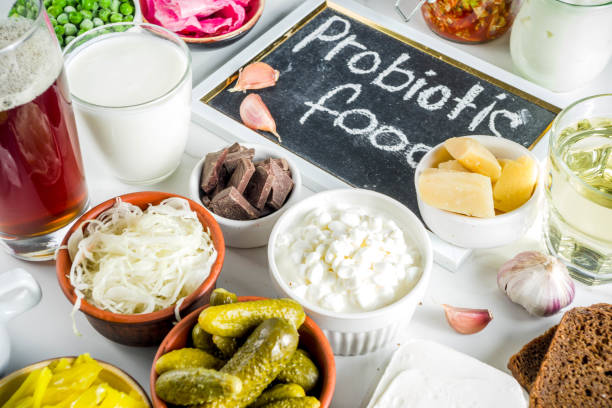
Probiotics vs. Prebiotics: What’s the Difference and Why You Need Both
Share
When it comes to maintaining a healthy digestive system, we often hear the terms probiotics and prebiotics — but do we really understand what they are and how they work? These two components are key players in supporting gut health, but while they sound similar, they are actually quite different. In this article, we’ll dive into the distinction between probiotics and prebiotics, and explain why both are necessary for a healthy gut.
What Are Probiotics and Prebiotics?
At their core, probiotics are live bacteria and yeasts that benefit your body, particularly your digestive system. These “good” bacteria are often called “friendly” or “helpful” because they help restore balance to your gut microbiota — the complex community of microbes living in your digestive system. When the balance between beneficial and harmful bacteria shifts too far toward the harmful side (which can happen due to factors like stress, poor diet, or antibiotics), probiotics can help restore balance. You can find probiotics in fermented foods such as yogurt, kefir, miso, sauerkraut, and kombucha.
Prebiotics, on the other hand, are a special type of dietary fiber that the human body cannot digest. They act as food for probiotics, fueling these good bacteria and helping them to grow and thrive in your gut. Prebiotics are found in a variety of plant-based foods, particularly those high in fiber, like garlic, onions, bananas, leeks, and whole grains.
While probiotics are the beneficial microbes themselves, prebiotics are essentially their food source. Think of prebiotics as the fertilizer that helps probiotics flourish.
Why Do You Need Both?
Although both probiotics and prebiotics play vital roles in supporting digestive health, they work best in tandem. Probiotics populate your gut with beneficial bacteria, while prebiotics nourish and fuel these bacteria to ensure their survival and effectiveness. Without prebiotics, probiotics would struggle to thrive and carry out their beneficial functions.
Consuming a diet that’s rich in both probiotics and prebiotics can help support a healthy gut microbiome. A balanced gut is essential for proper digestion, as it can influence the breakdown and absorption of nutrients, and it helps regulate bowel movements. Moreover, a healthy gut is associated with a stronger immune system, better mental clarity, and even mood regulation. Research has shown that an imbalanced gut microbiome can contribute to a range of health issues, including digestive disorders, obesity, and autoimmune diseases.
While probiotics work directly to populate your gut with beneficial bacteria, prebiotics help ensure these bacteria have the nutrients they need to survive and grow. When both are included in your diet, they work together to enhance the overall health of your digestive system, fostering an environment where beneficial bacteria can thrive.
How to Include Both in Your Diet
Including both probiotics and prebiotics in your diet is simple and can be done with a variety of foods. Start by adding probiotic-rich foods like yogurt, kefir, kimchi, or miso to your meals. These foods contain strains of beneficial bacteria that can help support your gut.
On the prebiotic side, make sure to include a variety of fiber-rich foods such as onions, garlic, leeks, asparagus, and whole grains. These foods will provide the necessary nutrients to fuel the probiotics in your gut and help them do their job effectively.
Maintaining a healthy gut goes beyond just taking probiotic supplements or eating fermented foods. To truly support your digestive health, it’s important to understand the roles of both probiotics and prebiotics, and to include them in your diet. When combined, they create a balanced, flourishing gut microbiome that promotes better digestion, immunity, and overall well-being. So next time you plan your meals, think about adding both probiotics and prebiotics to the mix for a healthier, happier gut.
Get more knowledge about eating healthy, please refer to Mediterranean Vegetarian Cookbook.
